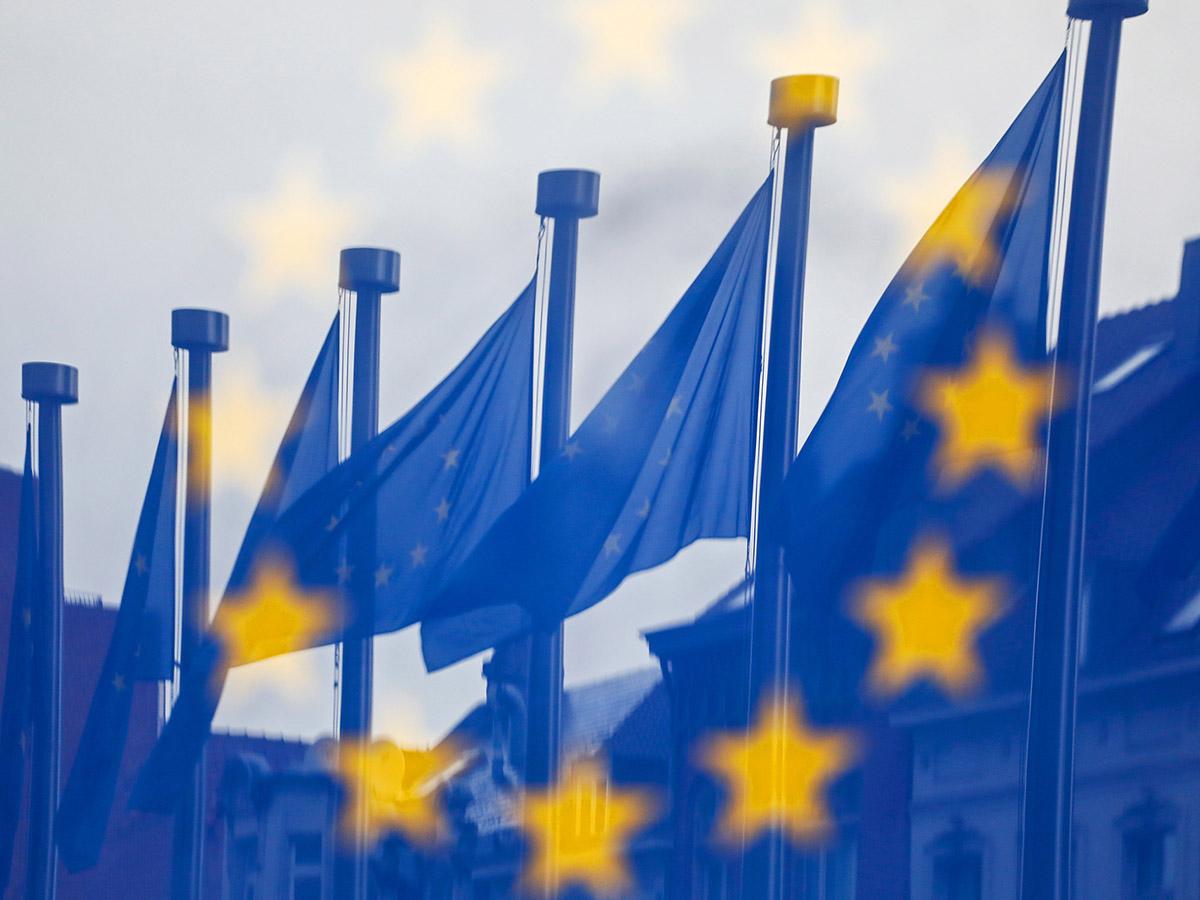On 7 November, Jean-Claude Juncker delivered his final autumn economic outlook before he steps down as the European Commission’s president, a role he has held for five years. Unfortunately, it was not quite the parting speech he’d hoped for.
After six consecutive years of growth, peaking at 3% at the start of 2018, the European Commission significantly downgraded the Eurozone growth forecast last week, anticipating EU-wide GDP growth of just 1.1% in 2020. Bad news for European stock markets then?
The major European stock market indices have provided mixed results since the news, with the FTSE 100 down 1.2% through to 18 November, while Germany’s DAX was flat at 0.2% and the French CAC 40 was down 0.6% over the same period.
Trade wars, geopolitical tensions, a struggling manufacturing sector, a general economic slowdown across the globe and the continuing uncertainty around how, when and even if the UK might leave the EU have combined to create this more circumspect forecasts.
Moving markets
“We are entering a new period,” the EU’s economics and financial affairs commissioner Pierre Moscovici commented on the forecast. “For seven years we had consecutive growth and for the last three years, a very substantial rate. This is obviously not the case anymore.”
“For seven years we had consecutive growth and for the last three years, a very substantial rate. This is obviously not the case anymore” - Pierre Moscovici
And while Brexit may have dominated the conversation in Europe, now that the UK’s deadline for leaving the EU has been extended, other headwinds are becoming apparent.
Chief among these is the fate of the German economy, which has narrowly avoided slipping into recession, reporting 0.08% growth on 14 November. This news follows 18 months of declining industrial output, with car production having fallen to a nine-year low, and a hefty chunk of the country’s exports beyond Europe ─ chiefly, industrial equipment and machinery to China ─ being stymied by Donald Trump and Xi Jinping’s tariff stand-off.
Fortunately, its domestic market is faring well, with a robust service sector, healthy private consumption shored up by low inflation and interest rates, and a strong labour market. Bundesbank chief economist Jens Ulbrich says that Germany’s “two-speed economy” has allowed the DAX to outperform most of its Western counterparts this year, growing 24% so far in 2019.
24%
Amount the DAX has grown in 2019
The problems hitting Europe’s largest economy will ripple across the continent, however. Exports make up almost half of Germany’s GDP and the country is the number one trading partner of France, Italy, the Netherlands, Belgium, Slovakia and Sweden. “When Germany sneezes, the rest of Europe catches a cold,” warned Hungarian finance minister Mihaly Varga.
Germany’s barely perceptible growth rate is not the only disappointment in Europe. On 6 November, the IMF downgraded growth predictions for France and the UK, which it now thinks will record 1.2% growth each this year.
Despite economic predictions for France, the country’s blue-chip index, on the other hand, has performed almost as well as Germany’s in 2019. The CAC 40 rose 25.3% YTD through 18 November, while the Lyxor CAC 40 UCITS ETF, which tracks the benchmark French index, is up 23% YTD – it is up 0.3% since the IMF’s announcement on 6 November.
However, the news in the UK is less positive. The FTSE 100 was flat at 0.07% at to close at 7,307p on the 18 November – 4.9% off its 52-week high of around 7,686p – and has fallen another 1% since then. Meanwhile, the iShares Core FTSE 100 UCITS ETF, which aims to track the index, is down 0.7% since the start of November and up just 7.8% YTD.
Shocking the system
There is an argument that if Germany’s neighbours do indeed “catch its cold” and fall into recession next year, the markets will shore up.
The European Central Bank, which has in the past few months cut interest rates, resumed quantitative easing and announced it would continue its bond-buying programme indefinitely.
This could be a “big support” for Eurozone assets said Mislav Matejka, head of global and European equity strategy at JPMorgan according to Reuters. “Meaningfully stronger fiscal support is unlikely anytime soon,” he conceded, “but we believe equity markets could start to price in increasing odds of this happening.”
It’s a risky strategy, but others also believe a widespread recession could ultimately kickstart the Eurozone, by forcing it to rethink its fiscal policies. “A very prudent stance towards fiscal spending has become mainstream in northern Europe at a time when monetary policy has lost its punch,” says Carsten Brzeski, chief economist at ING Germany.
“This is unsustainable – but a rethink could benefit both the German and the Eurozone economies. Given negative interest rates and high investment needs when, if not now, is the perfect time for investing in digital and traditional infrastructure projects?”
However, Angela Merkel is according to some unlikely to begin borrowing and spending her her way out of trouble.
“Given negative interest rates and high investment needs when, if not now, is the perfect time for investing in digital and traditional infrastructure projects?” - Carsten Brzeski, chief economist at ING Germany
A wider issue
Ultimately, it is still more likely that wider global factors will have the greatest impact on the collective Eurozone economies ─ and possibly even put them back on track. While the spectre of a no-deal Brexit seems to have passed, the markets won’t be able to hit their stride until it’s known for certain what the UK’s EU withdrawal agreement and new government look like in the new year.
More uncertain still remains the outcome of US-China trade spat, with Trump claiming last week that a deal is “ close” while, within the same speech, calling the Chinese “cheats”.
Matejka believes that depending on how the ECB responds to the expected longer-term stagnation across the continent, European stocks could be poised for a rebound. “We now believe that there is an opportunity for Eurozone stocks to bounce back,” he stated.
Disclaimer Past performance is not a reliable indicator of future results.
CMC Markets is an execution-only service provider. The material (whether or not it states any opinions) is for general information purposes only, and does not take into account your personal circumstances or objectives. Nothing in this material is (or should be considered to be) financial, investment or other advice on which reliance should be placed. No opinion given in the material constitutes a recommendation by CMC Markets or the author that any particular investment, security, transaction or investment strategy is suitable for any specific person.
The material has not been prepared in accordance with legal requirements designed to promote the independence of investment research. Although we are not specifically prevented from dealing before providing this material, we do not seek to take advantage of the material prior to its dissemination.
CMC Markets does not endorse or offer opinion on the trading strategies used by the author. Their trading strategies do not guarantee any return and CMC Markets shall not be held responsible for any loss that you may incur, either directly or indirectly, arising from any investment based on any information contained herein.
*Tax treatment depends on individual circumstances and can change or may differ in a jurisdiction other than the UK.
Continue reading for FREE
- Includes free newsletter updates, unsubscribe anytime. Privacy policy





